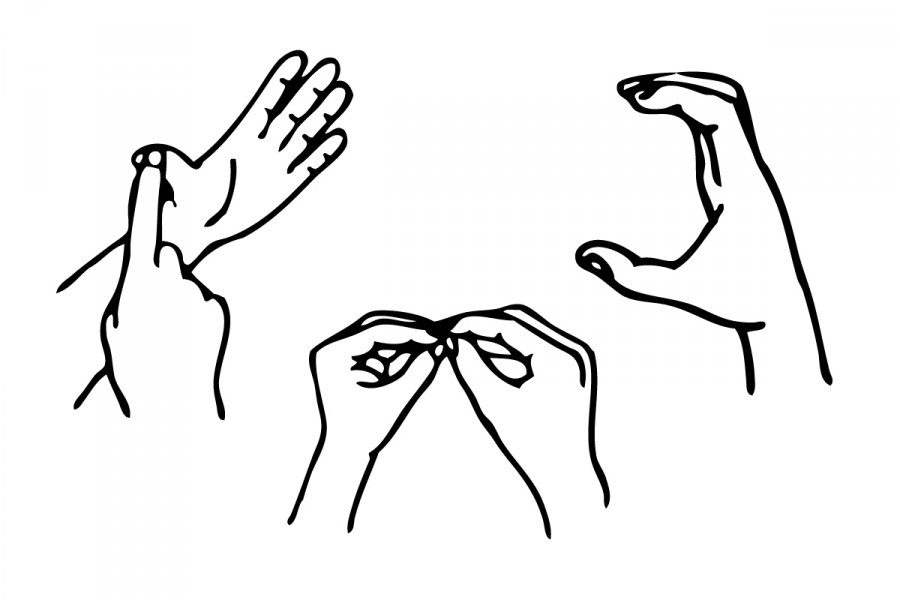Languages – classroom activities
Ideas on how to relate languages teaching to future careers and life beyond school.
What's on this page?
Languages students learn to:
- communicate in an additional language
- develop their capacity to learn further languages
- explore world views different from their own.
By building career-related activities into your curriculum area you are helping your students to develop the understandings, skills and attributes that they need to make positive career decisions throughout their lives.
Activities for Year 7 upwards
- Display the Where to? poster in your subject area. You can download these below.
- Set homework activities that include using this website to research language-related occupations.
- Allow students time to write in their learning and career plans about the skills they are learning in their subject.
- Compare and contrast cultural practices with relation to occupations. For example, you could compare the job of chef in one country with the job of chef in another.
- Encourage discussion about the language skills required for a range of occupations.
- Encourage students to use the Internet to research their role models’ career paths.
Use this website to find a number of language-related occupations. Ask students to each pick one occupation and then research it by:
- finding information on the Internet
- asking family/whānau if they know a person in the occupation who would be willing to talk about their work
- texting CAREER to 434 to get a career information pack posted to them.
Activities for Year 11 upwards
- Encourage discussion about occupations that focus on different cultural settings; the need for more than one language; and the support of people from other countries.
- Ask students why they have chosen this subject, what skills they bring to it, and what skills they will develop. Then discuss how these skills and interests could be transferred to the outside world.
- Encourage students considering STAR or Gateway to select courses or work experience that match their skills and interests.
- Help students to develop people skills by encouraging them to become mentors for junior students. Get students to identify the skills they will be developing by doing this, and what occupations require these skills. If possible, suggest students act as mentors to students from a culture other than their own.
- Help students to gain knowledge of potential career possibilities in languages in New Zealand and internationally through class visits, focused research, and listening to role models invited to do class talks.
- Ask students about times in the past when they have interacted with people from different cultures. Ask what went well, and what skills the interaction helped them develop.
- Encourage students to record their skills and achievements in their CVs, using the CV Builder tool on this website.
Activities for all ages
- Invite guests from the community to speak about their career pathways.
- When developing research topics, try to include careers content. For example, ask students to research 10 language-related occupations that would be involved with the next NZ International Film Festival.
- Use career themes in oral and written work, as particular topics are explored and new language is learned.
- Create a careers corner in your classroom. This could feature subject/occupation-related posters, tertiary posters, magazines and books that are related to your subject area, and newspaper articles.
- When doing out-of-classroom activities try to link careers content to each activity (eg when visiting a work setting, have a set of questions students can ask about occupations and career pathways).
- Ask students to investigate and report on careers in which knowledge of other languages assists communication and provides a social, political, or economic advantage.
- Make the most of your students’ favourite medium. For example, create an exercise involving mobile learning. Ask students to text someone about something that is relevant to what they are doing in class. (For example, they might text their mother about how she can make sure someone of a specific culture is supported in her workplace.) This could also be an inter-class texting session. Ask students to text another student identifying three skills the latter has in your subject area.
- Encourage students to text or email Careers New Zealand and ask for information on a particular industry, occupation or course of study.
- Make the most of tertiary trips. Ask students to keep a diary of their visit and present back to the rest of the class.
School-wide activities
A wide range of activities will take place in your school during the year. Consider how you can incorporate career education into them.
Event examples are:
- cultural events
- sports events
- school fundraising
- community events
- Matariki
- kapa haka
- career expos.
Classroom discussion points
Take five minutes at the end of a lesson to have a discussion about careers, or set homework on a careers topic. Questions you could ask include:
- Which jobs can be related to language learning?
- Why is understanding cultural meaning important when job hunting?
- Which jobs require the skills developed in this classroom?
- Who could you talk to if you wanted to find out about becoming a...?
- How would a librarian benefit from knowing several languages?
- What would the advantage be of a nanny knowing several languages?
- Why is a fisheries officer similar to a flight attendant? (You can use other occupation combinations.)
Planning questions
- What occupations link to my subject? Do I know anyone involved in these occupations who I could invite to visit students as part of my teaching programme?
- What research topics could my students cover that would help them explore language-related careers?
- What mediums can I use? What resources are out there for me?
- What unit standards could I cover using careers-related material?
- Can I link what I’m doing with other curriculum subjects? Who would I need to discuss this with?
- How can I make the most of my school’s career adviser?
- How can I make sure that I am being inclusive of Māori and Pasifika world views?
Teacher reflection questions
- Do I know what my students' career aspirations are?
- How can I encourage students to capture or record their dreams?
- Do I have an up-to-date understanding of the importance and use of the skills I teach in this subject in the workplace? If not, how could I brush up on that knowledge?
- Do I have support from senior management? How can I get this?
- What combination of subjects are my students taking? What is their rationale for this? How can I better help my Year 10 students during subject choice time?
- Am I encouraging students to reflect on the relevance of their learning to their options after they leave school?
- Have my students set clear goals? What other skills do they need to develop on top of language learning for them to achieve their goals?
- How can I make the most of school events such as parent evenings?
- What do parents know about career pathways related to languages? How could I help parents to improve their understanding of this?
Linking career education to the learning languages curriculum
Here are some of the objectives from the learning languages curriculum that can be related to career education.
Levels 3 and 4
Manage self and relate to others
- Express and respond to personal needs and interests.
Levels 5 and 6
Participate and contribute in communities
- Communicate appropriately in different situations.
Levels 7 and 8
Select and use language, symbols, and texts to communicate
- Communicate information, ideas, and opinions through increasingly complex and varied texts.
Careers New Zealand website links
Find out more about these language-related industries:
- Culture and heritage
- Defence
- Education
- Entertainment
- Government
- Hospitality
- Languages
- Management and consulting
- Public order and safety
- Retail
- Telecommunications
- Tourism
- Transport and logistics
- Writing and publishing
Updated 9 Jul 2018



